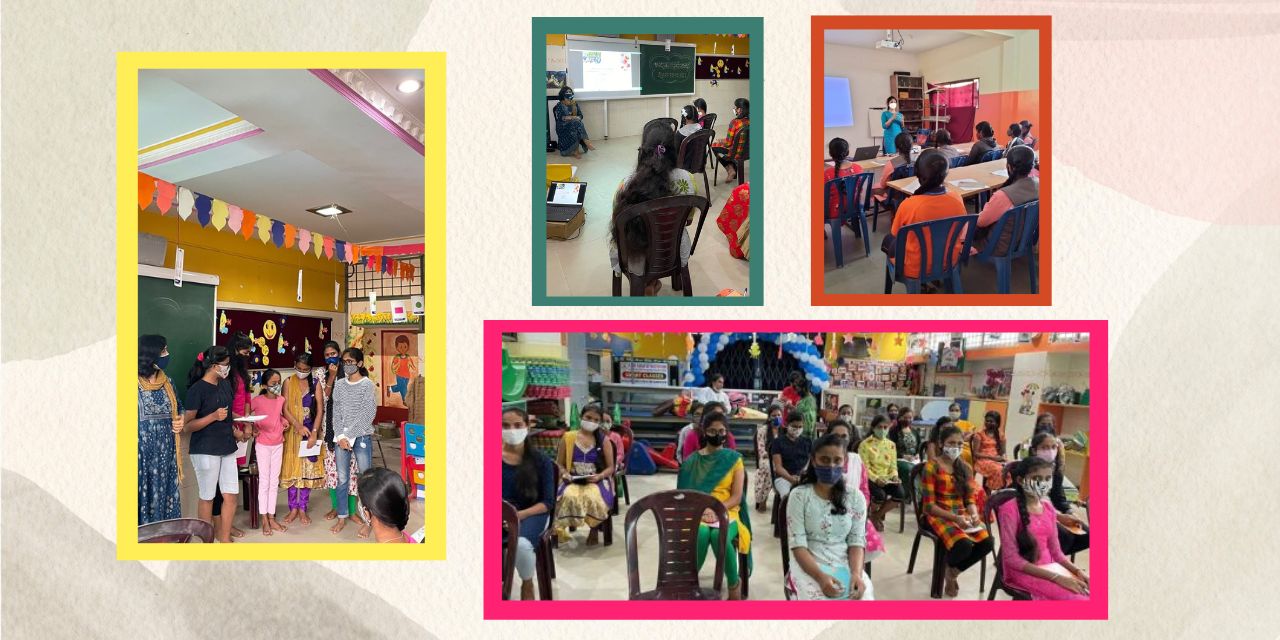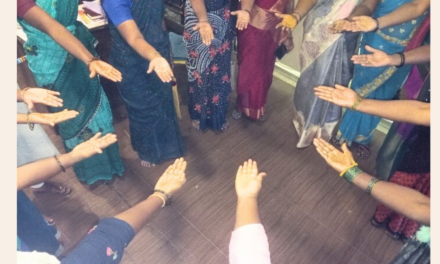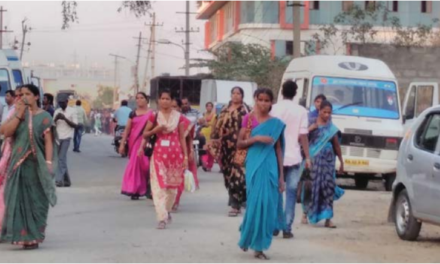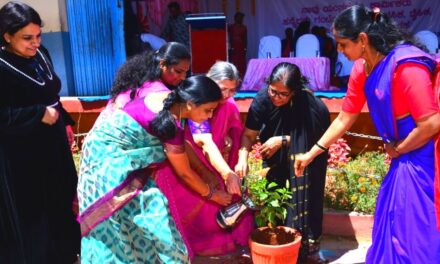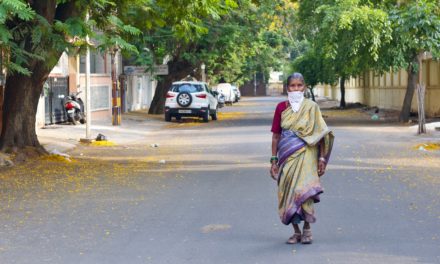A Cividep Study Notes How Pandemic Intensified Anxieties & Disrupted Education Leading To Overall Decline of The Mental Health of Adolescent Girls
When her garment work career ground to a halt during the pandemic-related lockdown, Bengaluru-based tailor, Lakshmi (name changed), sat at home. She was frustrated and worried like many who got a pay cut or lost their garment factory jobs during the time. But she gained something else during that time – an opportunity to spend time with her teenage daughter Bhagya and slowly rebuild her relationship with her.
“Lockdown was a blessing for me, as I was able to spend quality time with my mother,” recalls Bhagya. For the first time, the mother told the teenager her pains, frustrations, and the harassment she undergoes at the factory to make ends meet. “From then, I have been helping her with household chores,” says Bhagya, who is now doing a part-time job along with studying for a college degree.
It is a rare happy story in such households where women are usually the sole or main income earners . Their spouses are usually employed in unorganised sectors with low wages or are unemployed. To cater to the needs of their families these women, around 5 lakh in Bengaluru’s garment factories alone, work in precarious conditions with long working hours.
The resultant stress faced by the workers and their families worsened during the Covid-19 pandemic. Cividep and its partner FEMNET sought to document the problems faced by the adolescent girls in this report, ‘Troubled Mindscapes: Studying The Mental Health of Adolescent Girls In Garment Worker Households Amid The Covid-19 Pandemic’. The study noted that the pandemic intensified anxieties, deepened financial insecurities, and disrupted education, leading to overall decline in their mental health and well-being.
How did this situation come about? Despite working for several years in this sector most women workers are paid low wages ranging between Rs. 9000 – 10,000 per month. Despite working for years on end, they are unable to make ends meet, let alone make savings. To compensate, women take up extra paid jobs or work overtime in the factory
No Quality Time
During the course of Focus Group Discussions with the adolescent daughters of garment workers (some of which are pictured above), the research team uncovered several lesser-known consequences of long working hours. Once they return home from work, these women have to tackle household and care work for another six hours without any support. High levels of workplace stress and harassment, distress of unpaid labour, and lack of spousal support lead to women missing out on spending quality time with their adolescent children.
“I need somebody to talk to without being judged,” says Geetha, an 18-year-old girl from Mysore Road. Sometimes, there are serious consequences. “Dad used to misbehave with me, that was painful, I couldn’t share it with my mother. I don’t shout, I just cry out in pain,” recalls Padma (name changed), another 18-year-old.
Often, household and care responsibilities also fall on the girl children. In Lakshmi’s household, Bhagya was expected to care for her younger brother as the mother had to support her aged in-laws and deal with her chronic back pain.
Widespread Impact
Lack of attention to the needs of adolescent girls in their formative years has an implication on their social, economic, and health development. Around 9.8 million adolescents need a support system to help cope with mental health issues, notes the Cividep study. The prevalence of these issues is predominantly higher among children and adolescents from low-income urban households as they face mental health issues, food insecurity, housing issues, and lack of a social support system.
In the course of Cividep’s field research with garment worker families, several teenagers have complained about the same and requested support.
Why Crisis Worsened During The Pandemic
The situation worsened during the pandemic as the brands sourcing from suppliers withdrew orders while some of them did not pay for the orders shipped leading to women workers either losing their jobs or not receiving their lockdown wages.
Workers had to borrow money from informal moneylenders at a high rate of interest to purchase essential commodities and pay rent. “During the lockdown (May-July 2020) a trade union received several calls from garment workers requesting relief as some of them were terminated while others denied work due to lack of orders. Around 5–15 workers visited the union office every day requesting support as they did not have income or savings to rely on despite working for several years,” says a worker leader.
Due to financial constraints, households with adolescent girls and boys were forced to withdraw their daughters from college. They were then told to work as piece rate workers or helpers in the garment factories or other low-paying jobs despite wanting to pursue their education. Some of these girls faced harassment from family members at home and were unable to share it with their peers or teachers as educational institutes were closed and couldn’t seek help.
Bhagya says that she wants to continue her studies and get a stable job, so that she and her family are never as vulnerable as they were during the lockdown. There are many who haven’t had such breaks. The study recommends several long-term and short-term interventions that could still help mitigate the consequences of the lockdown on young adults like Bhagya.
Immediate & Practical Needs:
Educational Support:
- Implement educational loans and scholarships to reintegrate girls who dropped out of school or college.
- Offer bridge courses or tuition classes to bridge learning gaps caused by online schooling.
- Ensure provision of mobile phones and laptops for continued education during similar future scenarios.
Mental Health Services:
- Establish counselling centres, both physical and online, to provide accessible support.
- Sensitise teachers, school principals, doctors, and parents to identify and address mental health issues among adolescents.
Awareness and Education:
- Raise awareness about crucial laws such as POCSO and PoSH among community members.
- Provide training in self-defence, spoken English, and leadership programmes to boost confidence.
Long-term Strategic Needs:
Social Support and Safety Nets:
- Strengthen social support systems, ensuring fair wages, access to health schemes, and benefits.
- Provide access to crèches, day care centres, and after-school programmes for adolescent girls’ development.

